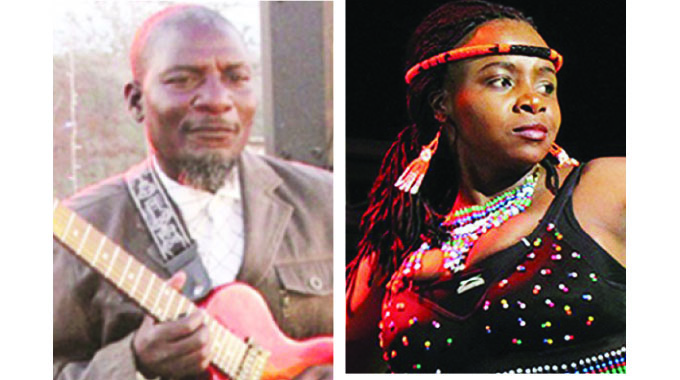What is an African story?
Beaven Tapureta Bookshelf
There is a new wave of intellectual criticism that is sweeping across Africa regarding the role of Western literary prizes in shaping the African story. In 2009 I covered a literary discussion at the Book Café then situated at Fife Avenue Shopping centre in Harare, where the topic was ‘‘Do prizes
play a role in arts development?’’
The discussion, chaired by veteran journalist Ray Mawerera, looked at the positive and negative effects of prizes and fellowships on an individual writer and some of the observations included that prizes are incentives yet some huge amounts of money the prizes carry can also damage a writer’s sincere objectives.
Murray McCartney, a local publisher, who was one of the panellists argued that some awards of large sums of money to a single writer, for a single short story, do little to advance the cause of publishing and reading in poor African countries.
“Why not give part of the money to a publisher to subsidize the production of a number of future anthologies and boost readership?” he asked.
Farai Mupfunya, the executive director of Culture Fund of Zimbabwe, who was also the 2009 discussion, did not agree with the fact that writers write because they want to win a prize but he said writers write because it is within them to write. However, he said competition is good because it encourages growth and the creation of new works.
The same debate about prizes loomed up at the recent official launch of ‘‘Gonjon Pin and Other Stories’’, a 2014 Caine Prize anthology, held at the Book Café last week. The anthology, published by AmaBooks in Zimbabwe and other co-publishers in other countries, has five stories drawn from the 15th annual Caine Prize short-list and twelve stories that emerged from the 2014 Caine Prize workshop held in Zimbabwe this year.
The debate at the launch of ‘‘Gonjon Pin and Other Stories’’ showed that the question on the influence of literary prizes on African writers has now developed from being provincial to being intensely intellectual, as now, simply put, it’s ‘‘Do international literary prizes play a role in African literary development?’’
It is consistent with the burning 21st century literary debate on what an ‘‘African writer’’ or ‘‘African literature’’ is.
Are the Commonwealth Prize for Africa, Caine, Booker, and NOMA prizes doing more harm than good to the telling of a true African story? On what basis are the works by African writers being judged at these prizes which in some cases have part of the juries coming from the continent?
Among the outspoken critics of the Caine Prize in particular is Ikhide Ikheola, a Nigerian writer and critic who once wrote in an essay that, “The creation of a prize for “African writing’ may have created the unintended effect of breeding writers willing to stereotype Africa for glory.”
He said, “The Caine Prize has become a truly prestigious prize, which is a good thing. The problem now is that many writers are skewing their written perspectives to fit what they imagine will sell to the West and the judges of the Caine Prize. They are viewing Africa through a very narrow prism, all in a bid to win the Caine Prize.”
What Ikheola said more or less mean that the Prize has diverted writers from the principle which Mupfunya observed in 2009, that ‘‘writers write because it is within them to write’’. The ‘‘genius’’ in a writer which must be rewarded has now been replaced by an imposed framework which writers die to fit in.
Memory Chirere, a writer and academic, had an insightful conversation with Lawrence Hoba, Isabella Matambanadzo, Violet Masilo and Philani A Nyoni, four of the writers featured in the ‘‘Gonjon Pin and Other Stories’’ from which they read passages of their stories. He asked them various questions concerning their themes and styles and also how they benefited from the writers’ workshop which produced the 2014 Caine Prize anthology.
The debate on what an African story is was then triggered by a member of the audience who said there is often a problem about African stories being very pessimistic. “There is the challenge then, how do we make the stories optimistic?” she asked.
Chirere contributed by making reference to what another writer Helon Habila who in 2001 won the Caine Prize but he (Habila) questioned the prize if it is a ‘‘fair representation of the existential realities of Africa or if it is just a ‘Caine-prize aesthetic’’’.
“What then is an African story? Where is the African laughter in the written African story?” Chirere asked the four authors.
Philani A Nyoni, a poet as well as a short story writer whose story in the Gonjon Pin anthology is titled ‘‘The Sonneteer’’, said the truest things writers write reach out to many people.
“At times as a writer you find yourself in this grim reality and you just want to speak out, to vent out and that is why it all starts to sound depressing because your writing is coming from suffering. Maybe things will change and we will then write something beautiful. We won’t lie. I refuse to lie,” said Nyoni.
Lawrence Hoba, who read his short story ‘‘Pam Pam’’ featured also in the Gonjon Pin anthology, said, “I don’ think there’s lack of laughter because there have been a number of anthologies that have captured issues of laughing like ‘‘Laughing Now’’ (Weaver Press) but sometimes I think the danger is that even in reading African stories there’s something that readers want to see which they might see even if it’s not there. At times the author’s intention is not really to talk about the sad grim issues of life.”
And to this, Chirere responded, “But I notice there is deliberate sweet sadness in ‘Pam Pam’ and some of your stories?”
“I guess that’s how life is; life is bitter-sweet,” said Hoba.
Violet Masilo, author of the story ‘‘The Murder of Ernestine Masilo’’, also in the anthology, echoed Hoba’s view and said, “The ‘bitter-sweetness’ is our African experience and we are surviving it, sitting here and talking about it. We survive the experience to articulate the situation on behalf of those who do not have a voice. We do have a bit of laughter here and there in our stories but life has its ups and downs too.”
Zimbabwe’s multi-award winning writer Shimmer Chinodya, who was shortlisted for the Caine Prize in 2000, its inaugural year, was bitter about the Prize for it has become.
“One of the biggest crimes the Prize has committed is the way it has degenerated into gender and geographical issues. It has masqueraded as the prize ‘for African writing’, that’s nonsense. We have had the NOMA Award for Publishing in Africa, the Commonwealth Prize for Africa although it has been downplayed by the Caine Prize which has made the short story look an easier genre to write than a novel. African tradition is not a minimalist tradition. I think the Prize should grow out of the ten-page stories and do something,” he said.
Could Chinodya be ringing something said before by a prominent African literary voice Chimamanda Ngozi Adichie in her popular talk ‘‘The danger of a single story’’ in which she warns that if we hear only a single story about another person or country, we risk a critical misunderstanding.
Chinodya’s comments on African tradition not being minimalist dispute a statement on Caine Prize website which says the Prize’s “focus is on the short story, reflecting the contemporary development of the African story-telling tradition”. (Italics mine)
Despite all this criticism of the Caine Prize, Zimbabwe has had its share of the Prize over the years. This year Zimbabwe graced the Prize with writer Tendai Huchu’s story ‘‘The Intervention’’ making it onto the shortlist. In 2011, another writer NoViolet Bulawayo won the Prize with her story ‘‘Hitting Budapest’’ and seven years earlier, the Prize was won by Brian Chikwava.
First awarded in 2000, the Caine Prize is named after the late Sir Michael Caine, former Chairman of Booker plc, who was Chairman of the ‘‘Africa 95’’ arts festival in Europe and Africa in 1995 and for nearly 25 years Chairman of the Booker Prize management committee. The Prize is awarded ‘‘to a work (a short story) by an African writer published in English, whether in Africa or elsewhere’’.





Comments